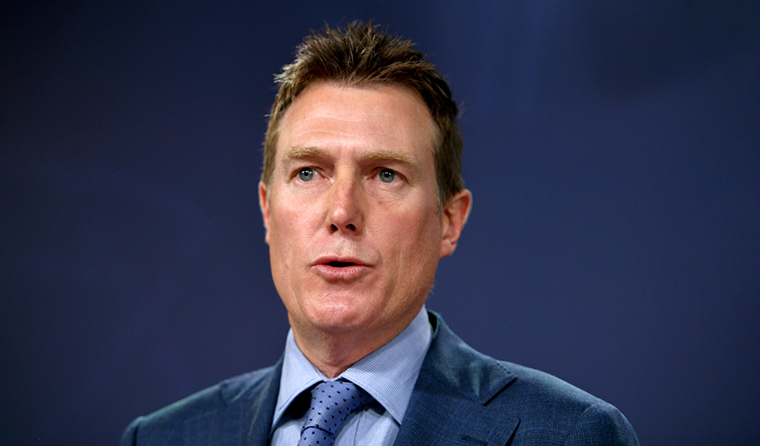News
Government announces national plan to combat elder abuse
The plan marks the first time there has been a coordinated national response to what is often a hidden issue.
 The vulnerability of the victims makes elder abuse an especially complex issue.
The vulnerability of the victims makes elder abuse an especially complex issue.
As has been revealed by the news emerging daily from the Royal Commission into Aged Care Quality and Safety, older Australians sometimes find themselves vulnerable to abuse in residential aged care.
Something not as often discussed, however, is that they can also be vulnerable to abuse in their homes.
‘Elder abuse goes under the radar and GPs and practice nurses need to keep it in mind when treating older patients,’ Professor Dimity Pond, a GP with a special interest in dementia and aged care, told newsGP.
Attorney-General Christian Porter this week launched The national plan to respond to the abuse of elder Australians (the National Plan), which is designed to combat this often-hidden problem in a unified, cohesive fashion.
‘There’s no doubt that a key benchmark of any society is how it treats and protects its older citizens, particularly those who may be vulnerable to abuse in whatever form it takes – emotional, physical or financial,’ the Attorney General said.
‘This National Plan provides a framework for coordinated action across federal and state or territory governments over the next four years.’
The National Plan is a response to a key recommendation of the 2017 Australian Law Commission report, Elder abuse – A national legal response, which detailed a number of examples of abuse in Australia.
‘Our population is ageing and the release of this National Plan reflects the commitment of our nation’s governments … to work together to ensure that older Australians can feel and be safe and supported in their later years,’ Mr Porter said.
The framework outlined by the National Plan is defined by five key priority areas:
- Enhancing our understanding of elder abuse
- Improving community awareness and access to information
- Strengthening service responses
- Planning for future decision-making
- Strengthening safeguards for vulnerable older adults
The National Plan also includes the launch of a nationwide elder abuse free call number, which replaces and combines different phone line services in each state or territory.
‘1800 ELDERHelp [1800 353 374] will connect callers from anywhere in Australia to a state or territory phone line where they can discuss potential or actual elder abuse, and get the information and referrals they need to protect themselves,’ Mr Porter said.
 Attorney-General Christian Porter believes ‘a key benchmark of any society is how it treats and protects its older citizens, particularly those who may be vulnerable to abuse’. (Image: Dan Himbrechts)
Attorney-General Christian Porter believes ‘a key benchmark of any society is how it treats and protects its older citizens, particularly those who may be vulnerable to abuse’. (Image: Dan Himbrechts)
In addition, $18 million in funding will be allocated over four years for national trials of frontline services designed to support older people who are experiencing abuse.
Three types of specialist support services will be provided under this funding package:
- Specialist elder abuse units
- Health-justice partnerships
- Case management and mediation services
Each state and territory will have at least one trial site established before the end of June this year.
The Federal Government is also concerned with identifying the prevalence of elder abuse in Australia, an area that has not yet been the focus of national research.
‘Comparable overseas studies show that up to 12% of older people experience abuse,’ the Attorney General said.
‘Based on a prevalence of 5% in Australia, it has been estimated that as many as 185,000 older people experience some form of abuse or neglect nationally each year.’
Ian Henschke, the Chief Advocate of National Seniors, an advocacy organisation for older Australians, has said that while he is broadly supportive of the National Plan, he would like to see less emphasis on research and more on education and directly addressing the issue of elder abuse.
‘What we need is more immediate and direct national action to provide appropriate protection for vulnerable older Australians,’ he said.
‘National Seniors is always supportive of good research, but in this case the priority is action.
‘Research among our members has shown six out of 10 haven’t heard of the Complaints Commissioner for Aged Care. So it’s important that the Federal Government provides funding to educate people about where they can complain about elder abuse.’
However, Professor Pond said she welcomed the funding of further research, as improved knowledge about elder abuse will help practitioners provide better support.
‘I think research will be good to identify more [elder abuse], although it will be hard to do,’ she said. ‘We need simple straightforward instruction for primary care on this issue, and then we need to know what to do once we have identified it.’
The Federal Government has also announced a funding boost to assist people in residential aged care, with an increase in subsidies paid to mainstream care facilities.
The funding injection takes the form of an upfront payment given to providers to assist in the care of their residents over the next 18 months during the operations of the Royal Commission. The rise in subsidy payments will total $467 million, or an additional average of $1800 per permanent aged care facility resident.
aged care elder abuse national plan
newsGP weekly poll
Are you interested in prescribing ADHD medication?